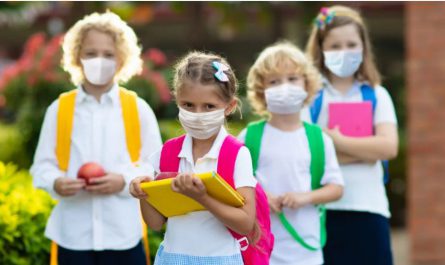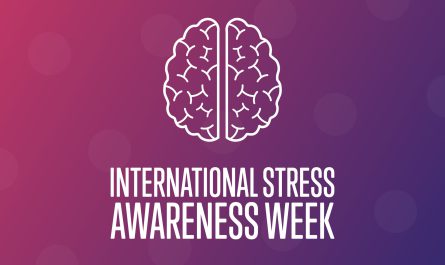National Stop Bullying Day
National Stop Bullying Day is observed annually on the second Wednesday in October in towns all throughout the country. This significant occasion serves as a reminder of the ongoing battle against bullying and the creation of welcoming situations for all people, particularly kids and teenagers who are frequently the most helpless victims of this terrible behavior.
Bullying is a prevalent issue that may happen verbally, physically, in person, online, or in other contexts. It entails acting aggressively repeatedly with the intention of hurting, intimidating, or controlling another individual. Bullying can have terrible consequences for its victims, including emotional and psychological trauma, decreased self-esteem, and in extreme situations, even suicidal ideation.
Bullying can have a serious and long-lasting effect on people, harming their physical, emotional, and mental health. Bullying can have serious repercussions that frequently last into adulthood. Some of the main effects of bullying are as follows:
Mental and Emotional Repercussions:
- Depression: Bullying victims may go through protracted phases of despair, hopelessness, and losing interest in past interests.
- Anxiety: Bullying can result in higher anxiety levels, including panic attacks, generalized anxiety disorder, and social anxiety.
- Low Self-Esteem: Being the target of bullies can undermine one’s sense of value and self-esteem, which can result in negative self-perception.
- Suicidal Thoughts: In extreme circumstances, bullied individuals may experience suicidal thoughts or self-harm as a coping mechanism for their emotional suffering.
Impacts on physical health:
- Chronic stress brought on by bullying can cause physical health issues, such as headaches, stomachaches, and sleep disruptions.
- Increased Chance of Chronic Conditions: Chronic illnesses including heart disease and autoimmune disorders may be more likely to develop if stress and anxiety are experienced over an extended period of time.
Educational and academic repercussions:
- Reduced Academic Performance: Bullying victims may have trouble in the classroom because of higher absenteeism, attention problems, and a lack of enthusiasm.
- School Avoidance: Bullying can have long-term effects on schooling, hence some adolescents may choose to skip school altogether.
Social Exclusion:
- Loneliness: As victims may retreat from friends and social activities to avoid more harassment, bullying frequently leads to social isolation.
- Difficulty Relationship Building: The psychological scars left by bullying might affect a person’s capacity for future trust and the development of wholesome connections.
Behavior Modifications:
- Aggression: As a means of self-defense or to deal with their feelings of helplessness, some bullied individuals may start acting aggressively.
- Substance Abuse: Bullying can be a risk factor for substance misuse because victims may use alcohol or drugs as a kind of self-medication.
National Stop Bullying Day is a significant occasion for raising awareness of the prevalent problem of bullying and for taking action. It provides a distinctive platform for people, organizations, families, and communities to work together in harmony. Raising awareness of the very detrimental effects of bullying and highlighting the importance of prevention is one of its main goals. This day educates people on the different types of bullying, including the increasingly common cyberbullying, and equips them with the skills to see its telltale symptoms through a variety of projects and dialogues.
Building empathy is a major subject of National Stop Bullying Day. Bullying can be effectively combatted using empathy, which promotes an atmosphere of compassion and understanding. On this occasion, people are urged to put themselves in the position of those who have been bullied in order to create understanding and support networks. Additionally, this day is crucial in breaking the taboo that frequently surrounds bullying victims. Many people suffer in silence because they are frightened to speak up. Bystanders are encouraged to come forward and report bullying on National Stop Bullying Day, making the world a safer place for everyone.
A powerful method to combat bullying and advance a culture of respect and kindness is to participate in National Stop Bullying Day. Wearing orange, the color associated with this significant day, is one easy but effective way to participate. You can join the fight to end bullying in its tracks by wearing orange clothing and showing your support for the cause in a visible way.
Social media is a powerful avenue for raising awareness in the modern digital era. Think about leveraging your internet presence to spread anti-bullying messages, beneficial links, and personal anecdotes about preventing bullying. Use the hashtag #StopBullyingDay to spread the word about your cause and engage more people. Your online voice can help spread awareness and motivate constructive change.
National Stop Bullying Day is only one day on the calendar, but its effects can linger for a very long time. We can promote a culture of compassion, empathy, and respect by persistently addressing and bringing attention to bullying. It serves as a reminder that every day ought to be set aside to combat bullying and build a society where everyone is valued and feels protected.
In conclusion, National Stop Bullying Day provides a chance for people to get together, spread awareness, and combat bullying via community action. Together, we can build a culture in which bullying is not tolerated and everyone may live without fear of injury or danger.




